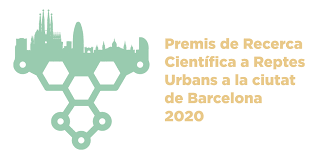The management of a pandemic and its effects is not something that can only be relegated to the medical field. It is necessary to attend to the intertwining social dimensions and also the deploying situation of “slow disaster”. In this sense, the Covid-19 has highlighted more than ever the need to overcome the residential-institutional model caracterizing much of housing solutions for groups considered as dependents. The focus of this project is on the intersection of frameworks that promote social well-being in relation to housing and basic services, with aging and people in situation of dependency. We propose to face the challenge to articulate and discuss infrastructures for the city of Barcelona -infrastructures as the intersection of housing and care; so that in the present study we will attend to what refers to housing, services and the community- that conform to the principles of Independent Living and Ethics of Care. A project that also poses the added challenge of articulating eminently participatory research in areas where this requires special care and attention.
In order to face these questions, we propose to develop three case studies for three different spaces -both by the type of group they are aimed at, and by the time of execution and development of the projects-: “Can70”, a senior cohousing initiative on its phase of development; a project for people with physical functional diversity called “Guttmann Barcelona Life”, which is at an initial stage; and finally the “Me’n vaig a casa”, an independent living program for people with intellectual disabilities in a moment of consolidation and new challenges, such as the aging of the users. Thus, the proposal is articulated through a research of a participatory nature, with a gender and intersectional perspective, and that intends to put at the center the citizens of Barcelona themselves involved with the object of study through participation in two co-research groups that will intervene in the development of the entire process.
This study wants to contribute answering the following questions: How are these infrastructures reconfigured by Covid-19? What changes does this mean for the organization of the forms of social support, technological even environmental, that make independent living possible? How do the uses and definitions of the individual and collective spaces that support care change? How are the networks of care and mutual support rearticulated around these projects?
The research is based on the following three objectives:
GO1- Learn from a gender perspective and in a participatory way with the groups involved how innovative care infrastructures, linked to the promotion of independent living, have been reconfigured in the context of Covid-19.
OG2- Generate concrete proposals with a gender perspective that favor the social well-being and quality of life of the groups that live in a situation of dependency, in relation to the promotion of new housing alternatives, in the city of Barcelona.
OG3- Promote and make visible, in a participatory way with the groups involved, the housing projects articulated from the paradigm of independent life in the city of Barcelona.
Funding Body: Ajuntament de Barcelona | Àrea de Cultura, Educació, Ciència i Comunitat de l’Ajuntament de Barcelona
Start date: 01/01/2021
End date: 31/12/2021
Principal Researcher
andrea.gsantesmases[at]der.uned.es
Principal Researcher
jmoyak[at]uoc.edu
Principal Researcher
lfarremo[at]uoc.edu







